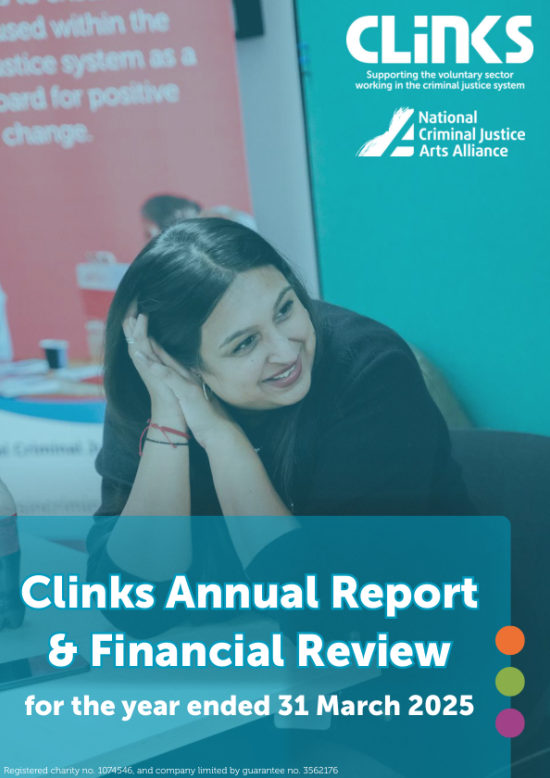This is the second in my blog series about innovation, and I want to focus on the forthcoming NOMS grants programme for the voluntary sector. This will mostly be information about what it is and how you can apply, plus some insights into what I think the grants are aiming to do; innovation being at the heart of it.
The grants are now live, all the information you need to apply can be found on Contracts Finder
Over the last three years, NOMS has been funding a range of innovative services to explore voluntary sector-led approaches to reducing re-offending. This has supported projects on mentoring, creative writing in prisons, supporting care leavers, advocating for older people, and a range of other, small-scale interventions. NOMS have described this funding as providing the voluntary sector support to “develop capability, knowledge and good practice and to deliver activity in areas which reflect the NOMS priorities”.
There is no doubt that the outcomes of these former grants have spurred NOMS on to re-run the grants programme, even if they can only run them for one year (the election getting in the way of extending them further). It is also spurred on by a desire to continue NOMS’ partnership work with the voluntary sector, encourage innovation, and offers investment in new areas of work.
What are you bidding for?
In addition to the eight strands of funding (below) that you can bid for, it was suggested that there may be one more grant focussed on women offenders in Wales, and possibly a way in which organisations could make proposals for new ideas/different areas of work (although these would likewise need to be contested through an open competitive process). We’ll keep you updated when we know more.
This is an open tender process, so anyone can apply, and it is a one-stage tender, so there’s no pre-qualification questionnaire. You can bid for more than one area, but all require separate (individual) applications. There were two events to disseminate some of this information that happened in Manchester and London over the last two weeks. We have been given the presentations from those events (see attachments).
The eight areas below have been decided through a NOMS-wide consultation, with prison, probation, NOMS and Ministry of Justice staff.
1. Integrated Parenting Project (Available: £70,000 / eSourcing ref.3754)
This grant is targeted on developing individually tailored and targeted work with offenders and their partners, with a focus on offenders from Staffordshire and HMYOI Brinsford. They will also be looking for ideas that connect with local troubled families services and strategies.
2. Social Care Advocacy (Available: £150,000 / eSourcing ref.3755)
This would involve developing best practice models around advocacy for prisoners to access social care. It is expected that this would be developed and delivered in partnership with relevant agencies such as Public Health England and appropriate Local Authorities. This is linked to new requirements around the social care of prisoners that is being introduced through the Care Bill, as well as the new offender health commissioning arrangements led by Public Health England.
3. Rehabilitative cultures (Available: £100,000 / eSourcing ref.3756)
This grant is focussed on enhancing rehabilitative cultures by developing, piloting and testing promising approaches. It is expected that these will be based on strong (and the development of) partnership with the wider voluntary sector, looking at approaches that combines work with offenders in the custody and community and testing how the co-design and development of a rehabilitative culture in custody can support effective through the gate activity and improved resettlement outcomes.
4. Reducing conflict or violence (Available: £75,000 / eSourcing ref.3757)
Reducing violence and conflict is critical to create a safe and humane environment in any prison, this grant is focussed on designing and testing approaches, interventions or services. This might focus on how you better manage instances of conflict or violence, or how a different approach could lead to an overall change in the environment within which people work.
5. Reducing reoffending amongst group/gang-affiliated offenders (Available:£75,000 / eSourcing ref.3758)
Developing and delivering services, interventions, or approaches to tackle offending that is related to affiliation with a specific group or gang. This is looking specifically at how you can develop resources that could be used by any provider (called ‘provider neutral’) to tackle this issue more effectively.
6. Offenders with communications difficulty (Available: £200,000 / eSourcing ref.3761)
Targeted on those people who have difficulties in understanding and/or being understood by staff, other service users, or other services. This covers both custodial settings and those on supervision in the community. This can cover a range of issues such as hearing impairment, learning difficulties, autism, Asperger's, literacy issues. NOMS is encouraging organisations with expertise to apply, but recognising that this will need to cover a number of areas (probable partnership approach).
7. Circles of Support and Accountability (COSA) (Available: £150,000 / eSourcing ref.3762)
This was referenced as working with people who are assessed as high risk, high harm, personality disordered offenders; specifically to improve the outcomes of people with high risk Autistic Spectrum Disorder (ASD) who are being released from custody into the community. It is anticipated that this will run as a model of COSA, with volunteer support, in two areas with one probably being London.
8. Parenting skills for Virtual Campus (Available: £110,000 / eSourcing ref.3763)
NOMS would like to show how Virtual Campus could be used to deliver online parenting and relationship skills in prison. This would test the capacity of Virtual Campus to deliver beyond its current Education, Training and Employment focus, asking organisations to develop innovative solutions that will benefit the service users, families, the prison, and probation providers.
Evaluation procedures
Attached (at the bottom) is a PowerPoint from what was a really good presentation by Ruth Mann from NOMS, who is a specialist as regards evidence. I thought she outlined an incredibly sensible approach to testing new and innovative approaches through appropriate levels of research and data gathering. With a clear message that this is not about re-conviction studies, or showing the impact on re-offending rates, or running randomised control trials (although great if you can of course). This was a much more manageable approach to research that gave space for organisations to be creative, even if they are no less rigorous in collecting quality data. You'll need to be crystal clear on how you're going to measure the outcomes of the work, but it will be up to you to think how you'll do it. If you need any help thinking this through then there are worse places to start than our own Evaluation and Effectiveness webpage.
What can you do next?
Remember, you can’t participate in the process until you’ve registred with the eSourcing portal. You should register yourself by emailing an expression of interest to procurement-reducingreoffendingCMT@noms.gsi.gov.uk with:
- Your Company Name,
- Your Personal Name,
- Your Contact Email,
- And quoting the relevant reference number(s); You will only need to send one email listing the grant opportunities you are interested in applying for.
Useful Information
Ministry of Justice, Procurement Unit (Reducing Reoffending Category Team)
Tel: 0300 047 5918 / Email: procurement-reducingreoffendingCMT@noms.gsi.gov.uk
eSourcing helpline: 0845 010 0132 (esourcing@noms.gsi.gov.uk)
Website: Contracts Finder
Powerpoint Presentation from the launch events
What's new
Blogs
Anne Fox CEO of Clinks to stand down after a decade of service
Latest on X
The role is for a leader from an organisation focused on racially minoritised people, with expertise in service delivery, policy, advocacy, or related areas in criminal justice. Racial disparities are present at every CJS stage. This role ensures these voices are central in shaping policy to help address and eradicate them. Apply by Mon 18 Nov, 10am. More info: https://www.clinks.org/voluntary-community-sector/vacancies/15566 #CriminalJustice #RR3 #RacialEquity

